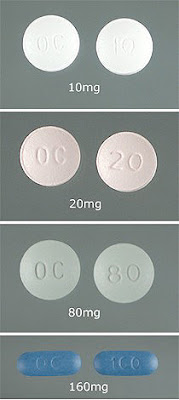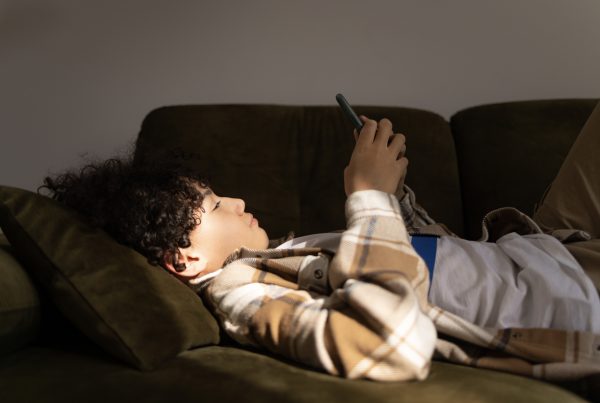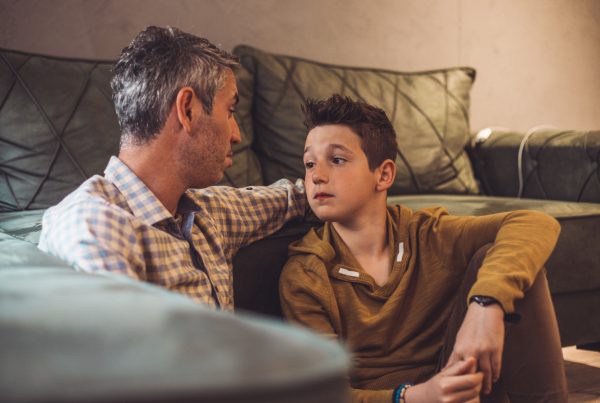Symptoms of Oxycontin Opiate Abuse, from a former opiate abuser:
I often read through information on addiction, including symptoms of addiction and think that someone should really expand on some things, so I’m going to address some of the things I, a former opiate abuser, consider telltale signs of opiate dependence or abuse. remember the opiate family is large, it includes heroin, Oxycontin, dilaudid, vicodin, hydrocodone, codeine, cough syrups and other pain killers…
-Nodding out, or being “on the nod“. This is when the user is so intoxicated they can’t keep their eyes open. Their head will literally nod forward as they go back and forth between being nodded out to jerking awake. If your teen is sitting straight up, asleep, they probably aren’t “just tired”. I don’t think anyone sleeps like that.
-Pinned eyes. Lizard paint. These terms explain how small pupils get when a person is under the influence of opiates. It’s freaky. Also, when someone is coming down from an opiate high, or is in withdrawal, their pupils tend to get really big. I used to try to blame this on my antidepressants, but opiates are the only drug I can think of that do this.
-Itchiness. Opiates usually make you itchy, especially the face, for some reason. Someone under the influence of opiates may seem to absentmindedly rub their face a lot, or scratch themselves elsewhere. Symptom lists seem to leave this one out a lot, but this combined with a couple of other factors helps me to peg an opiate user pretty quickly.
-Being cold when it is not cold. Especially when a user is “sick” (beginning withdrawal), they will get super cold. You can usually spot an opiate user because they are the one wearing a sweater when no one else is. When I was using opiates and I was sick, no amount of clothing could keep me warm.
-Sleepy, or not sleepy. Haha I know this one sounds weird, but when a user is high, they might sleep a lot- like, at really inappropriate times. Being in withdrawal makes you not be able to sleep.
-Stomach problems. If your teen suddenly loses their appetite or seems to be having a lot of stomach trouble, you may have an opiate user. (Or an eating disorder…see previous post on those symptoms.) The rush from an opiate high can often make one vomit. Withdrawal from opiates can make you vomit. I remember a lot of vomiting. If anyone had “food poisoning” as much as I claimed when I was using, all of Los Angeles should have been shut down. Also, withdrawal gives you really bad diarrhea. So glamorous.
-Runny nose. Withdrawal makes your nose run. Again, very glamorous.
-Other symptoms of withdrawal, in my experience, are muscle and back pains, cramping, sleeplessness, irritability, panic attacks, crying, hurting…ugh it was gross. Withdrawal sucks. It should be enough to keep sane people from using again, but often perpetuates use with addicts. At the end, I kept using because I didn’t want to get sick. This is especially dangerous because “chipping” (using and then quitting and then using and then quitting etc) messes with your tolerance and one can easily overdose. And die. It’s a big deal. Because withdrawal from opiates can be such a difficult and painful thing, I think it’s a really good idea to do it in a safe a supervised place, like residential treatment. When I had tried to quit cold turkey on my own, I never made it past two days because I couldn’t stand the withdrawal symptoms. I will admit I am quite the crybaby when it comes to pain, which I’ll admit is weird coming from an ex-cutter/IV drug user. I “kicked” opiates in a safe environment under a doctor’s care, and once I was safely detoxed from the drugs, was able to begin my real recovery process. I hope some of these “insider tips” help. Opiate dependence is a very serious issue; opiates kill people. If you think your teen is struggling with Oxycontin-opiate addiction, don’t hesitate to contact us today.







